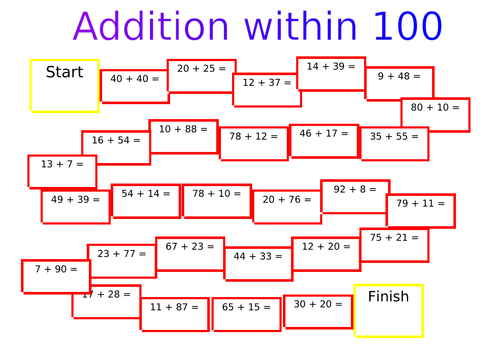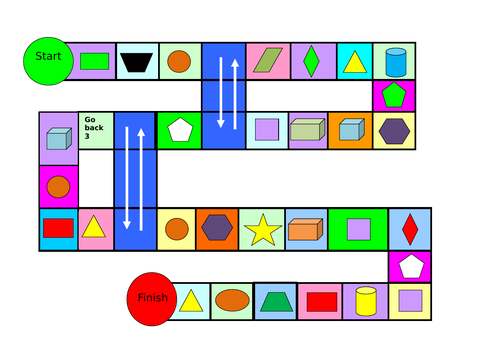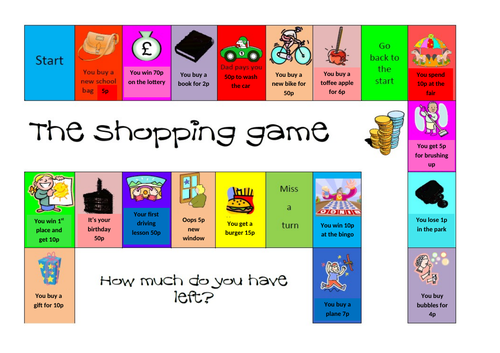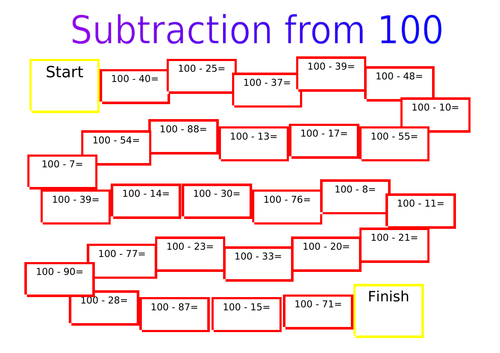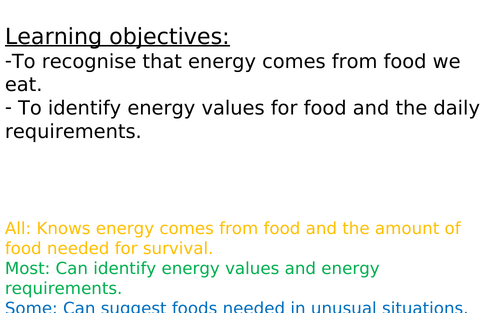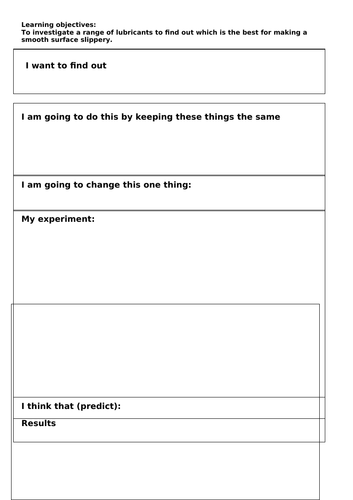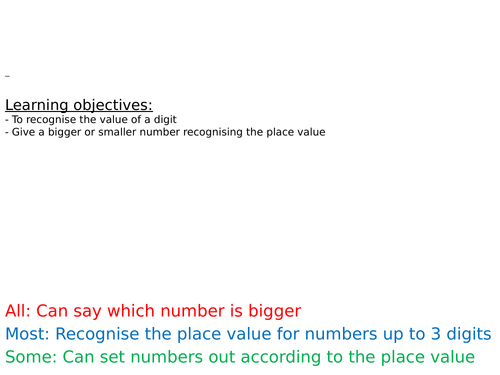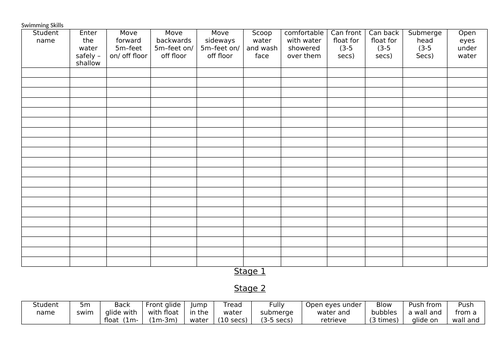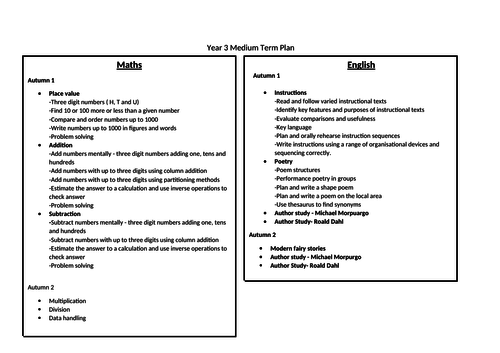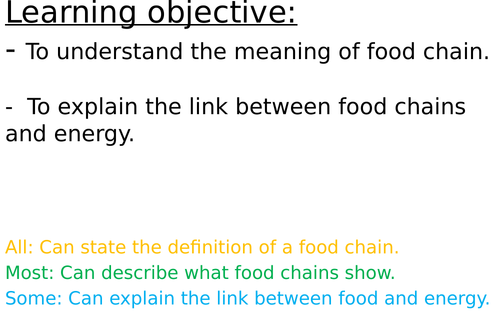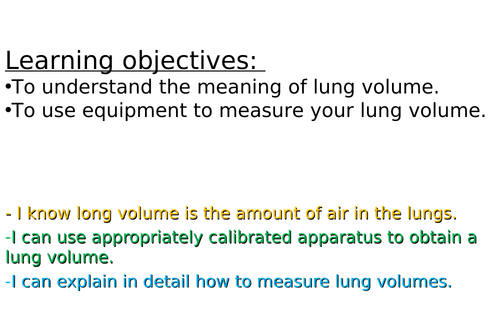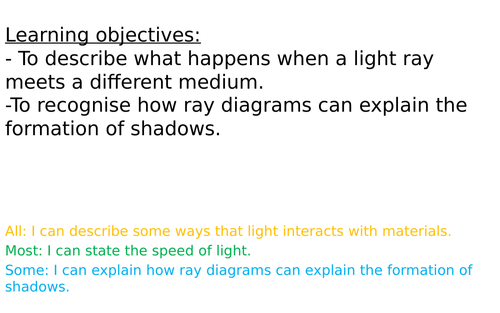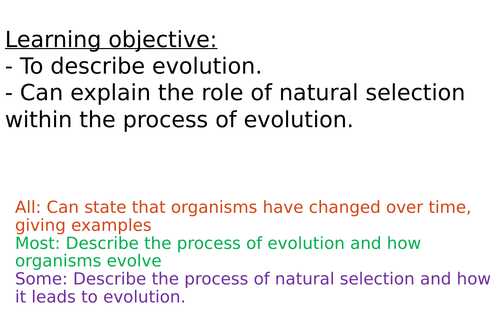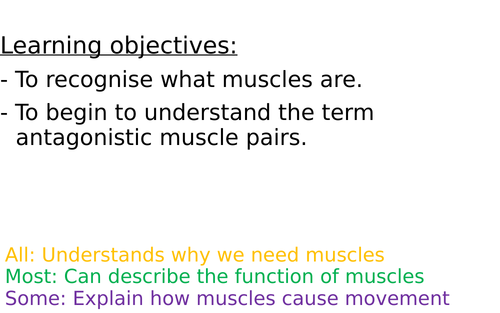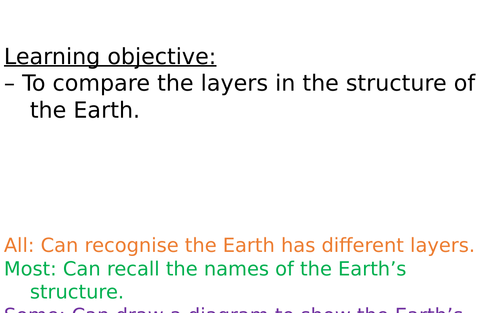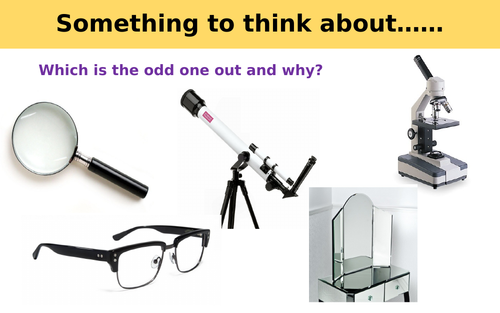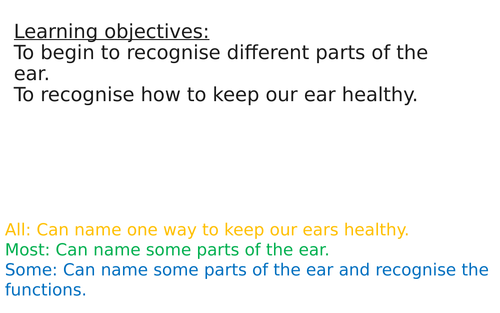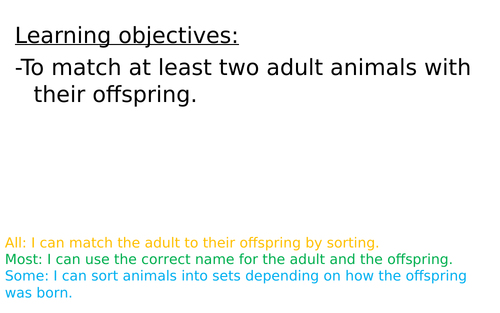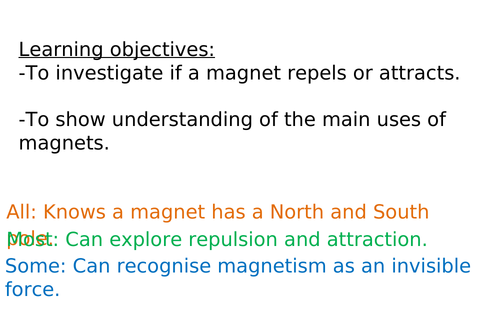
41Uploads
12k+Views
489Downloads
All resources

Addition within 100 game
Learning objectives:
Using and applying addition knowledge for TU + TU
This board game is a perfect game for a range of students due to the levels of differentiation which can be used:
Students use a number line
Students use a calculator
Students to use a 100 square
Students to use column addition methods
Great game for primary school or SEN students. Students to be working in partners or in a small group. Can also be used for interventions.
Each player takes it in turns to roll the dice and move along the board. When they land on a number the question must be answered; students can answer the questions in a variety of ways according to their personal attainment (see differentiation above)

Name the shape game
A great game to begin to learn the name of basic 2D and 3D shapes.
Students will need to follow the the game board; they will roll a di and which ever number it lands on this is how many squares they will move. Once they have rolled and moved their counter they will need to name the shape. If you get the name correct you can stay on this square, if you incorrectly name the shape you must go back to the square you can from.
Interact game to be played in a small group at school or a family game to play at home - a fun maths game!

Shopping money game - Coin recognition
Game to be played in a small group - great for learning and understand money for a variety of ages and also a fabulous resource to encourage coin recognition.
Game can either be played with plastic coins or real money for a chidlren’s money box or spare change jar. Each player will start with £1.
The game involves counting money through giving and receiving. All players must start on the start square; when it is your turn you will roll a di and move the amount of spaces on the game board. You must read what the square says and follow the instruction e.g. you spend 10p at the fair; if you land of this square you would count out 10p through coin recognition and give the money to a player of your choice.
The person at the end of the game with the most amount of money will win.

Subtraction from 100
Learning objectives:
Using and applying subtraction knowledge from 100
This board game is a perfect game for a range of students due to the levels of differentiation which can be used:
Students use a number line
Students use a calculator
Students to use a 100 square
Students to use column subtraction methods
Great game for primary school or SEN students. Students to be working in partners or in a small group. Can also be used for interventions.
Each player takes it in turns to roll the dice and move along the board. When they land on a square the question must be answered; students can answer the questions in a variety of ways according to their personal attainment (see differentiation above)

Energy costs - KS3 Activate Science
A unit worth of powerpoints including main points of discussions, starters and some suggested activities.
Energy costs - KS3 activate
Planning used with SEN KS3 students, also suitable for mainstream students.

Energy transfer - KS3 Activate Science
A unit worth of powerpoints including main points of discussions, starters and some suggested activities.
Energy transfer - KS3 activate
Planning used with SEN KS3 students, also suitable for mainstream students.

Addition Dienes rod lesson
Power point lesson plan including all the learning objectives and outcomes for different ability groups.
To recognise the value of a digit using Dienes rods
Explain how a number is bigger or smaller by recognising the place value
Can be used as a whole group or intervention group.
Resources needing Dienes Rods.
Slide - What is in the bag?
Is a independent activity where students choose a bag, in each bag there will be a different number of tens and units.
Students to count the amount and record these into their maths book or sheet.

Spellings- look, cover, write sentences
A spelling resource used for a range of different age groups depending on spelling ability.
The pack would last for 6 weeks, with a new set of spelling being learnt on a weekly basis. Students are required to write their spellings out at least 3 times to begin to understand the spelling, students may wish to decode and break down the word into different phonics sound to support their spellings.
Once students have practiced writing the word then they will need to write these words into sentences - this will allow students to understand the word in different contexts.

Swimming Skills - Stages 1 - 6
Stages 1 - 6 swimming skills.
Skills based swimming programme for school swimming lessons. Building water safety confidence, floating techniques, stroke technique and different activites to build up swimming confidence and skills.

Year 3 - Medium term plan
Year 3 medium term plan for 1 term.
Plan includes all learning objectives for one term, linking into the next term of work.

Ecosytems - KS3 SEND Science
A unit worth of powerpoints including main points of discussions, starters and some suggested activities.
Ecosystems - KS3 activate
Planning used with SEN KS3 students, also suitable for mainstream students.

Breathing - KS3 Science Activate
A unit worth of powerpoints including main points of discussions, starters and some suggested activities.
Breathing - KS3 activate
Planning used with SEN KS3 students, also suitable for mainstream students.

Light - KS3 Activate Science
A unit worth of powerpoints including main points of discussions, starters and some suggested activities.
Light - KS3 activate
Planning used with SEN KS3 students, also suitable for mainstream students.

Evolution - KS3 activate Science
A unit worth of powerpoints including main points of discussions, starters and some suggested activities.
Evolution - KS3 activate
Planning used with SEN KS3 students, also suitable for mainstream students.

Movement - KS3 Science Activate SEND
A unit worth of powerpoints including main points of discussions, starters and some suggested activities.
Movement- KS3 activate
Planning used with SEN KS3 students, also suitable for mainstream students.

Earth - KS3 Science activate
A unit worth of powerpoints including main points of discussions, starters and some suggested activities.
Earth - KS3 activate
Planning used with SEN KS3 students, also suitable for mainstream students.

Cells- KS3 activate SEND planning
A unit worth of powerpoints including main points of discussions, starters and some suggested activities.
Cells - KS3 activate
Planning used with SEND KS3 students, also suitable for mainstream students.

Sound and Hearing - AQA Unit Award Scheme Science
A unit worth of powerpoints including main points of discussions, starters and some suggested activities.
Sound and Hearing – AQA Unit Award Scheme
Planning used with SEN KS4 students.

Human reproduction - AQA Unit Award Scheme Science
A unit worth of powerpoints including main points of discussions, starters and some suggested activities.
Human reproduction – AQA Unit Award Scheme
Planning used with SEN KS4 students.

Magnets - AQA - Unit Award Scheme
A unit worth of powerpoints including main points of discussions, starters and some suggested activities.
Magnets – AQA Unit Award Scheme
Planning used with SEN KS4 students.

